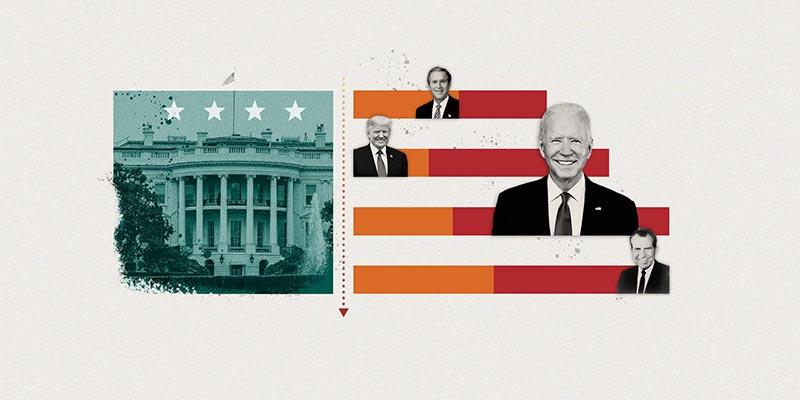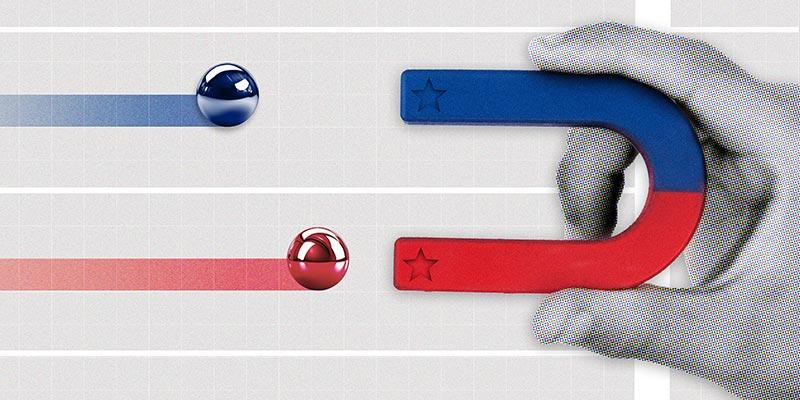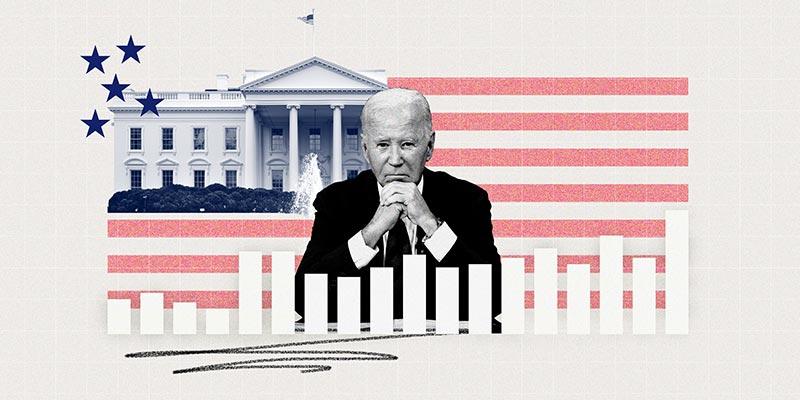WASHINGTON, D.C. -- Most Americans, 61%, remain dissatisfied with the way democracy is working in the U.S. However, the 34% who are satisfied is up from the record-low 28% recorded a year ago.
A Dec. 2-18 ║┌┴¤═° poll finds satisfaction with democracy remaining on the low end of ║┌┴¤═°’s trend, which dates back to 1984. Satisfaction levels were generally higher in the 1980s and 1990s than now, including a record-high 61% in 1984. The exception during this time was a 36% reading in June 1992, a year when an economic recession and misconduct by members of Congress sparked a wave of “angry voters.” Two years later, satisfaction was back to 50%.
║┌┴¤═° did not ask this question from 1999 to 2020, but other polling organizations did. Two CNN surveys, one from 2010 and the other from 2016, found that 40% of Americans were satisfied with the way democracy was working, generally lower than in the 1980s and 1990s but higher than in recent years.
Americans’ satisfaction today matches what it was in January 2021, shortly after disputes over the 2020 election outcome led to the Jan. 6 attack on the U.S. Capitol and disrupted the electoral vote count that would recognize Joe Biden as the winner and incoming president.
Republicans Fuel Uptick in Satisfaction; Party Groups Now Equally Satisfied
The increase in Americans’ satisfaction with democracy over the past year is primarily a result of higher satisfaction among Republicans, perhaps tied to Donald Trump’s victory in the 2024 presidential election. Thirty-three percent of Republicans are satisfied, nearly double the 17% measured in December 2023, a record low likely reflecting their displeasure with President Biden.
Democrats’ 35% satisfaction figure is similar to last year’s 38% but down significantly from 47% in January 2021. Independents are more satisfied than a year ago, 34% versus 27%.
As a result of the changes by party group, Republicans, Democrats and independents now express similar levels of satisfaction with U.S. democracy, a rarity in the trend.
Historically, supporters of the president’s party have expressed more satisfaction with U.S. democracy than those who identify with the opposing party. In addition to the current measure, taken during the transition from a Democratic to a Republican president, the other exception occurred in December 1998. At that time, the Republican-led House of Representatives was in the process of impeaching Democratic President Bill Clinton, and more Republicans than Democrats were satisfied with the workings of U.S. democracy.
Educational Differences Shrink
║┌┴¤═° documented a decline in satisfaction with democracy between 2021 and 2023 among Americans with a high school education or less, from 36% to 21%. At the same time, there was little change among other education groups, leading to a significant education gap in views of how U.S. democracy was functioning.
In the current survey, 34% of those with a high school education or less are satisfied, essentially back to where it was in 2021. Other education groups’ satisfaction levels have been steadier between the 2021, 2023 and 2024 surveys.
The gap between those with a high school education or less and those with a postgraduate education has shrunk from 17 percentage points in 2023 to six points today. Americans with some college education but no degree now express slightly less satisfaction than other groups, particularly in comparison to postgraduates.
Bottom Line
Americans largely express dissatisfaction with how democracy is working in the U.S., although to a slightly lesser degree than they did in late 2023. Trump’s victory in the 2024 presidential election could explain why Republicans’ satisfaction has rebounded after cratering in the past few years. Now, Republicans are just as satisfied as Democrats and independents. Still, satisfaction with democracy is much lower today than it was in the 1980s and 1990s, when Americans were generally more upbeat about national conditions, more trusting in government and more confident in public institutions.
To stay up to date with the latest ║┌┴¤═° ║┌┴¤═° insights and updates, follow us on X .
Learn more about how the works.
View complete question responses and trends (PDF download).




